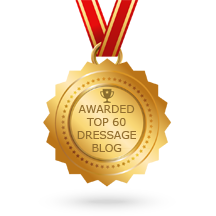Is Your Horse In A Stable Condition?
Are you sure that your horse is in a stable condition? Ok, so all us horse riders have probably heard that pun a thousand times before, but it actually does raise a very important point. Is your horse really as fit and healthy as you think? There are lots of common health conditions that most horses and ponies will experience at some point in their lives. Here are some of the most widespread, and how you can help to make your horse better.
Arthritis
Horses are just like us, really, and can suffer from some the same illnesses and conditions that we do. For instance, both humans and horses are prone to arthritis. This disease develops very slowly and wears away the cartilage between the joints. It can become extremely painful and can significantly reduce the horse’s movement.The best way to deal with equine arthritis is to give your animal anti-inflammatory drugs to help prevent pain. Regular massages can also greatly alleviate strain and stress on the affected area.

Horses are just like us, really, and can suffer from some the same illnesses and conditions that we do. For instance, both humans and horses are prone to arthritis. This disease develops very slowly and wears away the cartilage between the joints. It can become extremely painful and can significantly reduce the horse’s movement.The best way to deal with equine arthritis is to give your animal anti-inflammatory drugs to help prevent pain. Regular massages can also greatly alleviate strain and stress on the affected area.

Colic
Any abdominal pain in horses is known as colic. This can range from very mild and infrequent pain to a painful twist developing in the stomach, which requires emergency surgery. You will notice a few symptoms if your horse develops colic, including scraping at the floor with their hoof, attempting to urinate, and rolling around on the floor constantly. If you suspect that the horse as colic, call your vet straight away. It is possible to prevent colic, by feeding your horse little and often, and ensuring that they have a constant supply of clean water.
Any abdominal pain in horses is known as colic. This can range from very mild and infrequent pain to a painful twist developing in the stomach, which requires emergency surgery. You will notice a few symptoms if your horse develops colic, including scraping at the floor with their hoof, attempting to urinate, and rolling around on the floor constantly. If you suspect that the horse as colic, call your vet straight away. It is possible to prevent colic, by feeding your horse little and often, and ensuring that they have a constant supply of clean water.
 |
Vertebral Subluxation Complex (VSCs)
Thankfully, VCSc isn’t too common, but all horse owners need to know its symptoms and how to treat it. As this is a nerve and muscle disease, the symptoms include back pain, which is often noticeable by the way they stand or a refusal to work. If you think that your horse has VSCs, you might want to contact an animal chiro and book them in for a massage. This should help to relieve some of their pain. If symptoms continue after a massage, you should contact your vet for further treatment.
Cushing’s Disease
Cushing’s disease is associated with older horses and is a hormonal condition, which affects the pituitary gland. If you notice your horse has suddenly lost quite a bit of weight, is constantly thirsty, and is shedding a lot of its coat, then it is probably suffering from this illness. Even though little is known about this particular condition, there are still tablets available that can control the disease. You can get these from your vet and need to be given to your horse once a day. The vet will do a blood test after the horse has been on the medication for four weeks to figure out if it is helping.This treatment can be very expensive and is one reason why it is so important to take out insurance for your horse.
Thankfully, VCSc isn’t too common, but all horse owners need to know its symptoms and how to treat it. As this is a nerve and muscle disease, the symptoms include back pain, which is often noticeable by the way they stand or a refusal to work. If you think that your horse has VSCs, you might want to contact an animal chiro and book them in for a massage. This should help to relieve some of their pain. If symptoms continue after a massage, you should contact your vet for further treatment.
Cushing’s Disease
Cushing’s disease is associated with older horses and is a hormonal condition, which affects the pituitary gland. If you notice your horse has suddenly lost quite a bit of weight, is constantly thirsty, and is shedding a lot of its coat, then it is probably suffering from this illness. Even though little is known about this particular condition, there are still tablets available that can control the disease. You can get these from your vet and need to be given to your horse once a day. The vet will do a blood test after the horse has been on the medication for four weeks to figure out if it is helping.This treatment can be very expensive and is one reason why it is so important to take out insurance for your horse.
For more tips on horse health, speak to your vet.
*This post may contain affiliate links.













No comments:
Post a Comment